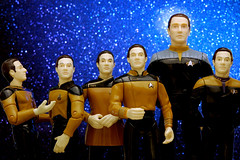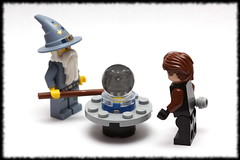
Speaker: Siva Vaidhyanathan
Don’t try to write a book about fast moving subjects.
He was trying to capture the nature of our relationship to Google. It provides us with a services that are easy to use, fairly dependable, and well designed. However, that level of success can breed hubris. He was interested in how this drives the company to its audacious goals.
It strikes him that what Google claims to be doing is what librarians have been doing for hundreds of years already. He found himself turning to the core practices of librarians as a guideline for assessing Google.
Why is Google interested in so much stuff? What is the payoff to organizing the world’s information and making it accessible?
Big data is not a phrase that they use much, but the notion is there. More and faster equals better. Google is in the prediction/advertising business. The Google books project is their attempt to reverse engineer the sentence. Knowing how sentences work, they can simulate how to interpret and create sentences, which would be a simulation of artificial intelligence.
The NSA’s deals that give them a backdoor to our data services creates data insecurity, because if they can get in, so can the bad guys. Google keeps data about us (and has to turn it over when asked) because it benefits their business model, unlike libraries who don’t keep patron records in order to protect their privacy.
Big data means more than a lot of data. It means that we have so many instruments to gather data, cheap/ubiquitous cameras and microphones, GPS devices that we carry with us, credit card records, and more. All of these ways of creating feed into huge servers that can store the data with powerful algorithms that can analyze it. Despite all of this, there is no policy surrounding this, nor conversations about best ways to manage this in light of the impact on personal privacy. There is no incentive to curb big data activities.
Scientists are generally trained to understand that correlation is not causation. We seem to be happy enough to draw pictures with correlation and move on to the next one. With big data, it is far too easy to stop at correlation. This is a potentially dangerous way of understanding human phenomenon. We are autonomous people.
The panopticon was supposed to keep prisoners from misbehaving because they assumed they were always being watched. Foucault described the modern state in the 1970s as the panopticon. However, at this point, it doesn’t quite match. We have a cryptopticon, because we aren’t allowed to know when we are being watched. It wants us to be on our worst behavior. How can we inject transparency and objectivism into this cryptopticon?
Those who can manipulate the system will, but those who don’t know how or that it is happening will be negatively impacted. If bad credit can get you on the no-fly list, what else may be happening to people who make poor choices in one aspect of their lives that they don’t know will impact other aspects? There is no longer anonymity in our stupidity. Everything we do, or nearly so, is online. Mistakes of teenagers will have an impact on their adult lives in ways we’ve never experienced before. Our inability to forget renders us incapable of looking at things in context.
Mo Data, Mo Problems





